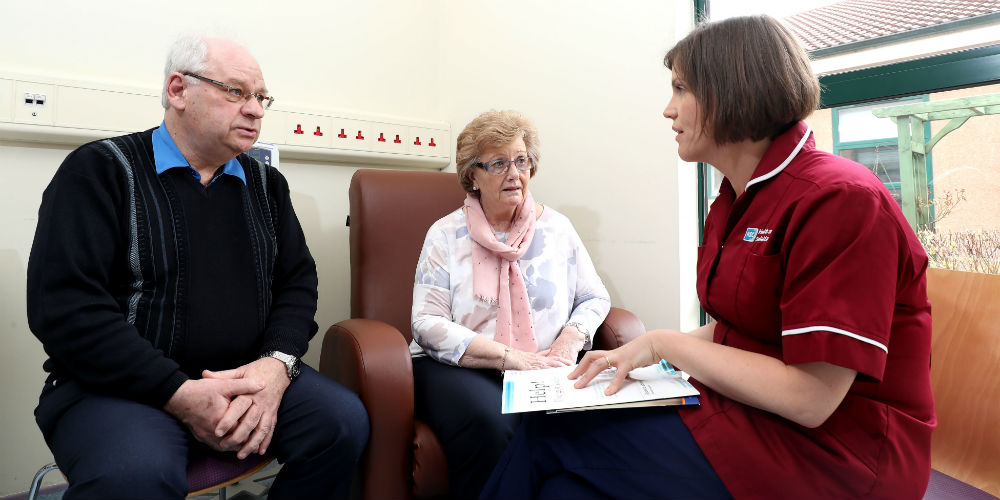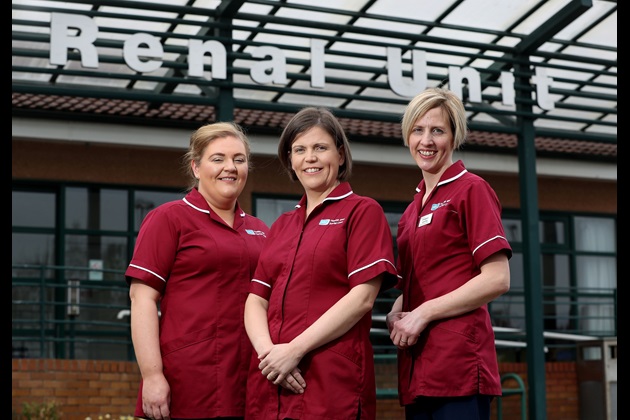Being diagnosed with chronic kidney disease can feel overwhelming for patients, but helping them manage their condition can be immensely rewarding, says Alison Cairns (pictured above, centre).
“My role is primarily about meeting patients for the first time after their diagnosis when they’ve been told they need treatment for their condition,” explains Alison.
“I’m nervous because I know the life-changing impact the diagnosis will have. At this stage, people are very vulnerable, but I support them to make positive choices. I watch them turn into informed patients, who are motivated, activated and challenge you about how things are done. I love that – it’s what drives me.”
Award winners
Last year, Alison and her colleagues in the renal home therapy team at Altnagelvin Area Hospital, Derry, won the RCNi annual Patient’s Choice Award, which is nominated by patients and their families, with the public voting for their favourite.
The team was put forward by Carmel and Joe McMonagle, who they have worked with for several years. “We’ve known them such a long time, they’re in a position to be critical,” says Alison. “That makes their nomination even more special.”
People don't always understand what it's like to be diagnosed
For the team, winning has provided a perfect opportunity to raise awareness of the impact of chronic kidney disease. “It’s been wonderful to be able to speak about what we do,” says Alison, who qualified as a nurse in 2002 and has worked in this specialty ever since.
“People don’t understand what it’s like to be diagnosed, as patients can often look so well,” she says. “But newly diagnosed patients will say that they’re in crisis and don’t know where to turn. They have so many questions. It’s a huge turmoil.” Yet with proper support and good communication, a majority of patients can accept their situation and begin to rebuild their lives, she believes.

No two days are the same for Alison and her colleagues, who between them manage a caseload of around 200 patients. “And that's among the many reasons why I love what I do,” she says.
Responsibilities include seeing acutely unwell patients on the ward, particularly those who are newly diagnosed; visiting patients at home, teaching them how to do dialysis themselves; and monitoring how effective their dialysis is.
“Every patient is so different,” says Alison. “We can see patients aged 18 up to their 90s. Some may be being assessed to see if they’re suitable for a transplant, others may have already been deemed unsuitable and others may be on the waiting list. Physically and emotionally they are at different points in their journeys – and a lot of what we do involves listening and responding.”
Enter now for nurse awards
You have until 15 February to submit your entry for the RCNi Nurse Awards 2019. Find out about the categories and how to enter.
Words by Lynne Pearce. Photography by William Cherry/Presseye








